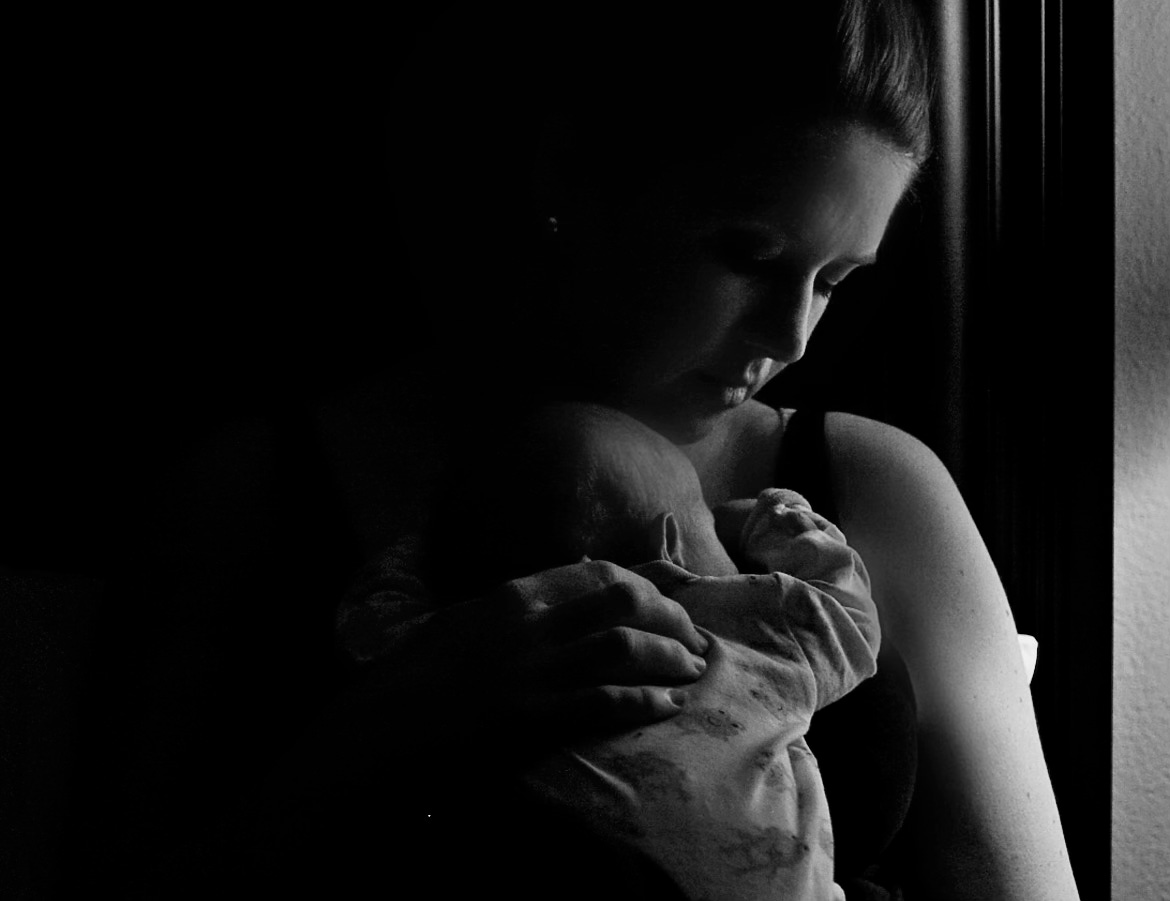The Impossible Math of Modern Motherhood
How Government Policies Are Dismantling the Economy Women Built Out of Necessity

I didn't choose entrepreneurship in 2008. The impossible math of modern motherhood chose it for me. While my corporate peers climbed ladders in a system designed for men without primary caregiver titles, I was quietly building an escape hatch.
My first son wouldn't arrive until 2011, but I already knew the truth no career counselor would admit: the system would eventually force me to choose between being the kind of mother I wanted to be and the kind of businesswoman I wanted to be. I refused that choice. I wanted both. Time with my children and the freedom to create something meaningful. Financial independence and the ability to be present for fevers and field trips. I wanted to own my talents and my time. Not because I was greedy, but because it was the only path that made sense in a world that demands everything from women while giving us impossible structures to work within.
And let me say this before we dive in… I know many incredible women who navigate incredible corporate careers while being wonderful, present mothers. These opportunities do exist, and they're remarkable. But I also know how those supportive environments are frustratingly rare. For every woman who finds that unicorn workplace that truly accommodates and supports parenthood, dozens more face impossible choices daily. The exception proves the problem with the rule.
Building Our Own Way Out
Always a believer that hard work could get me anywhere (not always true in life, but I was young at this point), I built Simplified from the ground up starting in 2008. Not because I was chasing business success or recognition, but because I wanted to have a BOTH type of life. I needed to create a future where I could work at home with a baby, step away to care for a sick child without judgment, and design my schedule around my family's needs while still building something meaningful professionally.
Again, I wanted it all. But I also needed it all.
It's nearly impossible to pay a mortgage on a single family income. The world requires so much from women today. And yet the structures of traditional work rarely accommodate the reality of our lives.
When Crisis Forces Innovation
The Great Recession that began in 2008 became a catalyst for women like me. That economic collapse triggered the largest increase in entrepreneurship in 14-years, with new business formation rates spiking dramatically in 2008 and 2009. Women weren't just losing jobs. We were reimagining what work could look like altogether.
What most people don't realize is that women's entrepreneurship has been steadily climbing for decades, but truly accelerated during that crisis. Female business ownership grew from just 13% of businesses in 1982 to 40% by 2012. We didn't just join the conversation. We changed it entirely.
Then came the pandemic, which created a second wave of women entrepreneurs. Women created about half of new US businesses for the third year in a row in 2022, compared to just 29% before the pandemic. And we did this while our worlds collapsed around us.
I remember those brutal early pandemic days. While running my company, I was also sitting next to my twins at the kitchen table, helping them navigate the mute button on Zoom kindergarten. I'd be on a critical business call, muted, while simultaneously making lunch, troubleshooting why a math assignment wouldn't upload, and finding the glue bottles for that day's art project. There were no boundaries, no breaks, no backup.
We did it all. Because we had to. The pandemic didn't give us a choice. It just piled more responsibilities onto plates that were already overflowing. While others debated when life would "return to normal," women entrepreneurs were creating a new normal, one that somehow managed to incorporate virtual school, health fears, isolation, and increased domestic responsibilities into already demanding lives.
Beyond "Girl Boss": A Revolution of Necessity
What drives me, what drives most women entrepreneurs, isn't some abstract desire for "girl boss" status. It's the practical reality that the systems built by men, for men, simply don't work for us. When faced with the impossible math of modern motherhood, we create alternatives.
The economic pressure on families today is crushing. Two incomes aren't a luxury. They're a requirement. Housing costs have skyrocketed, healthcare expenses have multiplied, and childcare can cost more than college tuition in many states. The math simply doesn't work for most families on a single income.
For millions of women, the traditional workplace itself became the expendable piece of the equation.
Today, one of the achievements I'm most proud of is creating a company that employs women, many of whom are mothers or hope to become mothers someday. I've built the flexible environment that no one could offer me. Where brilliant women can design work around their lives, not the other way around. Where a sick child or a school play doesn't trigger career anxiety, but is simply part of the rhythm of a workday designed for real humans with full lives.
I built Simplified to serve other women facing the same impossible choices. I knew we needed tools to streamline our overly-complicated lives. But what began as a survival strategy became something much bigger. A movement to redefine success on our own terms.
That's the untold story of women's entrepreneurship. We didn't start businesses because we read inspirational LinkedIn posts about following our passion. Many of us started businesses because the traditional workplace was designed for people who don't bear children and don't carry the mental (and physical) load of family responsibilities.
And these untold stories matter tremendously.
Under Siege: What We Stand to Lose
They matter because right now, thousands of women-built businesses are quietly shutting their doors. Recent tariffs are devastating small businesses, particularly those founded by women who "do not have the capital to invest in building factories" or other infrastructure. Supply chain disruptions, inflation, and economic uncertainty threaten everything we've built. The very government that should be supporting this economic revolution is instead undermining it with policies that favor large corporations over the kitchen table startups that have transformed women's lives.
These untold journeys of women making it work in this impossible world, these journeys now ending without fanfare or headline news. Every closure represents not just a failed business, but a woman forced back into systems that were never designed for her success. Each one represents children who will see less of their mothers, families facing renewed financial strain, and communities losing the innovations that only come from diverse leadership.
Today, women-owned businesses represent a formidable economic force: 42% of all businesses in the US are now owned by women, with approximately 1,817 new women-owned businesses starting every day. We aren't asking for permission. We're creating our own paths. But that remarkable progress stands to be erased if we don't recognize the existential threat these businesses now face.
And still, like always, we keep our chins up. Women entrepreneurs have weathered economic collapse, a global pandemic, and are now facing inflation and supply chain chaos. Each crisis has only made us more resourceful, more innovative, and more determined to build businesses that work for our lives, not the other way around.
I didn't set out to be an entrepreneur. I set out to create a life where I could be both a mother and a professional success. The fact that millions of women have made the same calculation speaks volumes about how fundamentally broken our traditional systems are.
We started businesses not because we wanted to, but because we had to. And in doing so, we've begun to remake the world of work itself. One determined woman at a time.
These stories deserve to be told.
These businesses deserve to survive.
And the women who built them from nothing deserve to see their vision continue, not collapse under the weight of policies that never considered them in the first place.
Are you a female entrepreneur? Is your business and balance at risk? Do you work in a corporate environment that is supportive of your many roles? Or perhaps not supportive? We'd love to hear from you. And we'd love to support you. Share your business links and your stories in the comments. And, if this resonated with you, please share with other women who might need to hear it.
Keep reading:








such a good one. I also turned to entrepreneurship when I could no longer sustain the pace of full time employment and motherhood and now have the unique ability to see how many of my consulting clients (all virtual-first organizations) make this work. The vibe is VASTLY different from org to org, but the leaders I see doing it well are the ones who lead by example when it comes to balancing work and family. One org uses G-Chat to stay connected on everything from "my kid is sick so she'll be joining me on zoom calls" to "I'm taking a 20 min screen break, be back soon" to "taking my computer to a doc appt, let me know if you need anything." At first, I thought it was WILDLY unnecessary (like please, just take the screen break), but when the leader sets the example by saying "a family friend is in the hospital, I'm getting a slow start this morning," it sets the tone for others to comfortably and without fear of repercussion say "it's been a long week, I'm logging off early."
Other orgs I work with mandate open calendar access and leaders actively choose to add personal appts and kid events to their calendars. The ones who don't have are more resentful, just a busy, and lack understanding of others' day-to-day capacity. People are worried about oversight, but the LACK of transparency is what leads to a lack of empathy.
I'm not sure what my point is here except to say that if you feel like your organization is not the unicorn, supportive environment you hope for, modeling and encouraging schedule and capacity transparency might be a place to start - especially if you're a leader.
Caring for young children contributes nearly as much to the GDP as the military and in a capitalist economy that amount of labor cannot be done for free, it’s unsustainable. I hope we’re close to an awakening about this. We need to expand the child tax credit to cover a parent’s previous year’s income for the first five years of their child’s life. That way parents will have the ability to be the primary caregiver of their child (a natural right that modern capitalism has robbed from us) or pay the actual cost of quality childcare. Investments in early childhood like this have the greatest ROI of any government spending because they eliminate the need for many other services later in life—every dollar spent on early childhood programs saves 5 dollars in social services *not* needed down the pike. This would be the easiest solution to MANY issues!